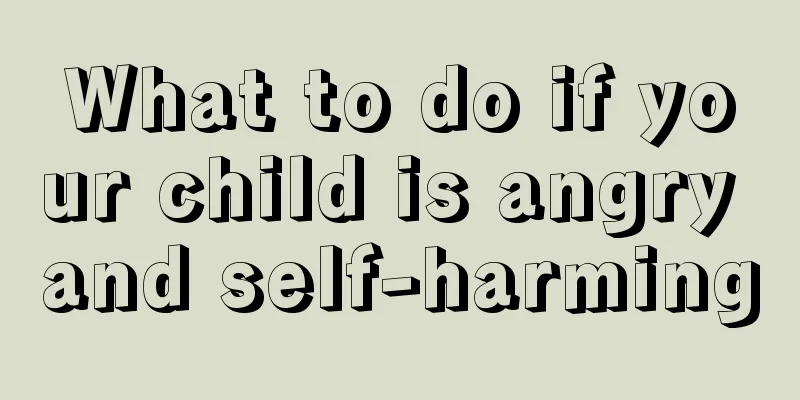Eight-month-old baby has eczema on his face

|
Eczema tends to recur, and babies with eczema will feel itchy and uncomfortable. It is often seen in skin folds, such as the elbows and armpits. It is common for babies aged 2-3 months to develop eczema. Because eczema is an allergic disease, it is most common in infants who are allergic to milk. The proportion of babies who drink milk powder suffering from eczema is higher than that of babies who are breastfed. Generally, if the eczema is not serious, no special treatment is required. Pay attention to the baby's skin cleanliness. Do not use soap, bath gel, etc. to wash the baby's face or bathe the baby. Just use clean water to wash it. Question 1 Infant eczema is a common skin disease in infancy. It is an allergic disease, and the exact cause is sometimes difficult to find. Baby eczema is usually called "milk rash". Milk eczema lesions often occur on the face, starting from the cheeks, gradually invading the forehead, between the eyebrows, and scalp, and recurring. In severe cases, the disease may spread to the neck, shoulder blades, or even the entire body. The lesions have various shapes, are mostly symmetrical in distribution, and can be mild or severe at times. On the face, there are initially clustered or scattered erythema and papules; on the scalp or eyebrows, there are often greasy scales and shiny yellow crusts. In mild cases, there are only light red patches with a small amount of desquamation; in severe cases, there are erythema, blisters, erosions, and infiltrations, which continue to spread and expand. If scratched, rubbed, or washed excessively, the erosion will worsen and the exudation will increase. Secondary infection often occurs due to skin damage, causing nearby lymph node enlargement, accompanied by fever, loss of appetite, dry stools, red urine and other systemic symptoms. Children feel severe paroxysmal itching, especially when it is warm, so they often rub their heads and faces on the pillow or the mother's clothes, or scratch them with their hands, becoming irritable, crying and restless, which often affects their health and sleep. It usually occurs 1-3 months after birth and usually improves and heals within 1-2 years of age. A few may develop into eczema in children. Method 1 Once the baby shows symptoms of eczema, the mother will feel helpless, and it is even more heartbreaking to see the baby's cheeks turn red. In addition to seeking medical treatment as soon as possible, there are many specialized treatments on the market. Parents should be careful when choosing eczema creams for eczema, because the methods of using eczema creams for different symptoms are different. Pay special attention to the following matters: 1) Diaper rash: Use mild water to gently wash the baby's affected area, and then apply an appropriate amount of eczema cream. ??. When you have tinea urinaria, you need to pay special attention to cleanliness. In the case of prickly heat rash, there is a chance of recurrence even after it is cured if you sweat a lot. Therefore, you should be careful to wipe off the sweat and change your underwear frequently. 2) Prickly heat rash, eczema, milk rash: Do not rub hard, apply the eczema cream gently, or apply a thin layer of eczema cream on gauze and then apply it on the affected area. 3) Itch and insect bites: Do not scratch. It is recommended to apply an appropriate amount of baby eczema cream as soon as possible to effectively stop the scars. When the itching or swelling is severe, try applying eczema cream on gauze first and then apply it to the affected area. |
<<: What to do if your child has acne on his face
>>: The reason why moles grow on children's faces
Recommend
What are the symptoms of cerebral palsy in children?
I believe that some parents have had this experie...
How to treat acute bronchitis in children?
If a child suffers from acute bronchitis, the big...
Why do children wake up easily when sleeping?
Parents who just had a baby know that babies are ...
What should I do if my baby cries when sleeping at night?
Some babies cry when they sleep at night. In this...
What should I do if my child is very active in class?
Children are naturally very active and have a str...
Children's phlegm-resolving and cough-relieving granules
Our parents nowadays attach great importance to t...
What causes black spots on baby teeth?
Some parents have reported that their children ha...
First aid treatment for pediatric convulsions
If there are children at home, there must be a lo...
3-year-old hydrocele
If a three-year-old child has hydrocele, the trea...
What to do if a 3-year-old child has a high fever and convulsions
Fever is a common disease in children, and most o...
Why does my child sit up and talk in his sleep at night?
Whether adults or children, everyone may talk in ...
What to do if your 2-year-old baby's legs are not straight
Many babies have crooked legs, but since they are...
What are the reasons why babies have trouble falling asleep?
Baby development is very important and is also an...
What is the cause of the newborn's hiatus?
There are many reasons for newborn hiccups. The m...
At what age should children start learning to dance?
Today's parents all hope that their children ...









